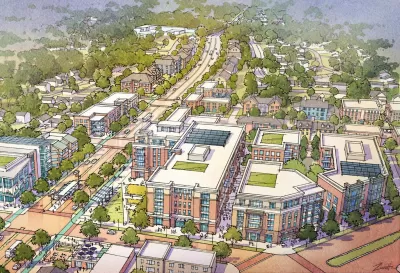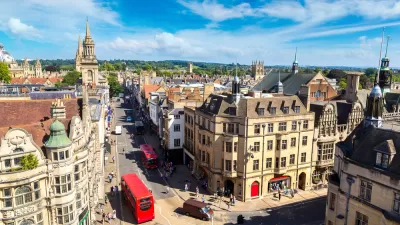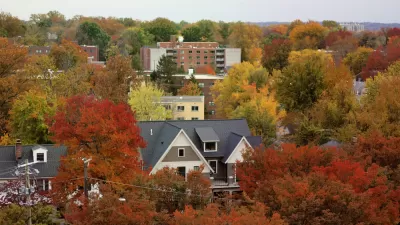A new plan under development in Montgomery County, Maryland plots a course change for the famously suburban county.

Dan Reed reports on the Thrive Montgomery 2050 plan, which is accepting public feedback through December 2020. Here's how Reed summarizes the planning effort:
Over the past year, Montgomery County planners have been trying to find solutions, and put them together in Thrive 2050, an ambitious document for how the county should grow and change over the next thirty years. Thrive wouldn’t actually change laws or policies: Planning Board chairman Casey Anderson called it a “plan for other plans,” helping leaders make laws or policies in the future. The plan’s big themes include racial justice, affordable homes, and more transportation options.
According to the insights and historical background offered by Reed, the county has a history of quick growth, but planners will need a new approach than the one implemented by Harland Bartholomew in the 1960s to deal with the 200,000 people expected to move to the county in the next 20 years. The big idea of Thrive 2050 is to replace the old "Wedges and Corridors" approach of the 960s with a new "Complete Communities" approach that is, as you might expect, a local version on the 15-minute community model catching on around the world.
"Opening up single-family zoning to allow 'missing middle' homes, like duplexes, townhomes, and small apartment buildings, would give people more housing options that fit their budget and needs," explains Reed. "Building out the Bus Rapid Transit network Montgomery County approved in 2013 would give people an option for longer trips."
According to Reed, the Thrive 2050 plan has already provoked some passionate opponents, who fault the plan's vision of relaxed zoning restrictions in single-family neighborhoods.
FULL STORY: MoCo is working on a plan to tackle racial equity, public health, and climate change

Alabama: Trump Terminates Settlements for Black Communities Harmed By Raw Sewage
Trump deemed the landmark civil rights agreement “illegal DEI and environmental justice policy.”

Study: Maui’s Plan to Convert Vacation Rentals to Long-Term Housing Could Cause Nearly $1 Billion Economic Loss
The plan would reduce visitor accommodation by 25% resulting in 1,900 jobs lost.

Planetizen Federal Action Tracker
A weekly monitor of how Trump’s orders and actions are impacting planners and planning in America.

Wind Energy on the Rise Despite Federal Policy Reversal
The Trump administration is revoking federal support for renewable energy, but demand for new projects continues unabated.

Passengers Flock to Caltrain After Electrification
The new electric trains are running faster and more reliably, leading to strong ridership growth on the Bay Area rail system.

Texas Churches Rally Behind ‘Yes in God’s Back Yard’ Legislation
Religious leaders want the state to reduce zoning regulations to streamline leasing church-owned land to housing developers.
Urban Design for Planners 1: Software Tools
This six-course series explores essential urban design concepts using open source software and equips planners with the tools they need to participate fully in the urban design process.
Planning for Universal Design
Learn the tools for implementing Universal Design in planning regulations.
Caltrans
Smith Gee Studio
Institute for Housing and Urban Development Studies (IHS)
City of Grandview
Harvard GSD Executive Education
Toledo-Lucas County Plan Commissions
Salt Lake City
NYU Wagner Graduate School of Public Service





























